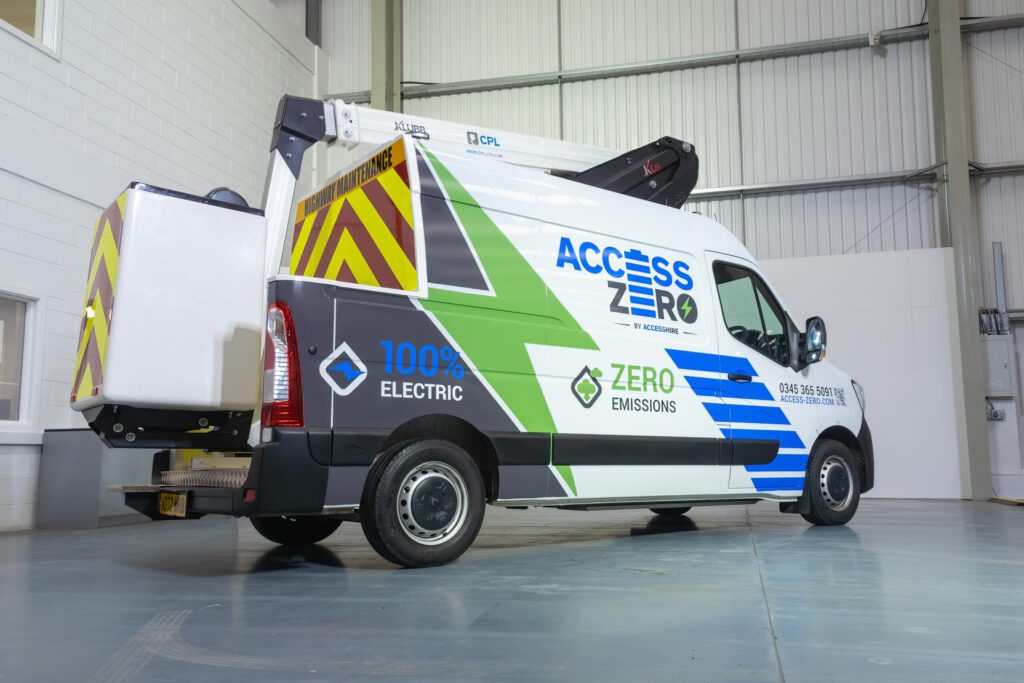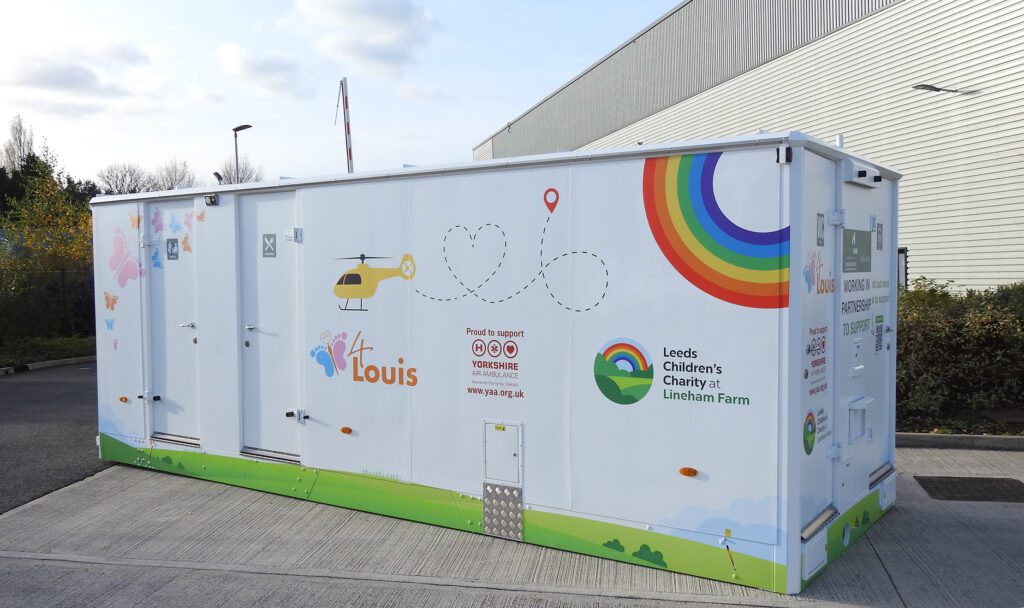The first all-electric vehicle-mounted access platforms are now available for long term hire and lease from the UK’s leading specialist in this field, Access Hire Nationwide (AHN), part of Kelling Group. The lease / hire package, including the all-electric VMAP and full maintenance / service support, has been launched as Access Zero.
Access Zero represents a unique proposition, combining the latest vehicle-mounted access technology along with a fully managed solution, including inter alia, breakdown & recovery, 24/7/365 operational support, LOLER and servicing, dedicated account management and replacement courtesy vehicles.
“The new Renault Master ZE with CPL KL26 electric boom provides a market leading, innovative solution for those needing to work safely at height using a specialist zero emissions asset,” stated AHN Sales Director, Martin Whitehead. “Both Access Hire and our customers are working toward ESG targets, improving on our sustainable performance, and 100% electric vehicles are the next step on that journey to net zero.”
“Access Hire has always had a long-term focus on minimizing emissions, whilst providing innovative assets that meet clients’ operational requirements,” said Stephen Moore, Kelling Group CEO. “We have the youngest and largest fleet of modern ULEZ assets in the UK, as well as existing hybrid solutions.
“The addition of the full electric Renault Master ZE augments our ECO credentials even further. Given our experience and expertise in the sector, we are uniquely placed to advise clients on the most appropriate asset solution to meet operational needs, whilst minimising CO2 emissions and meeting core ESG requirements.”
One example of a sector keen to capitalise on greener technology is that of local authorities, who use access platforms to, for example, maintain street lighting and other amenities. Reportedly, almost two thirds have declared that they aim to be carbon neutral some 20 years before the government’s target of 2050.1 With that in mind, the changeover to electric working vehicles is an important, but easy way to progress towards that overall net zero target.
Estimates place the number of electric and hybrid domestic vehicles on the UK’s roads at the end of 2022 at around 2-3% of the total, a growth of around 40% from the previous year.2 Growth in working vehicles, including buses and heavy-duty trucks, has been somewhat slower3, however as new technologies and batteries with increased performance are adopted, the gap in growth is expected to narrow.
With over 15 years’ experience devoted to the provision of access platforms, the AHN team provide technical advice and assistance throughout the hire process from selection of the right technology to IPAF operator training and help with advice around the use of these specialist vehicles.
All vehicle maintenance requirements, both proactive and reactive, are fully managed on behalf of the hirer by the 24/7/365 AHN Support Team, including LOLERs and regular servicing, ensuring regulatory compliance. For assets where down time can be costly to the operator, the combination of young, modern vehicles and full maintenance support offers AHN’s partners peace of mind, with maximised asset availability.
This combination saw AHN cement its leading position in VMAP provision last year by being named as the No. 1 provider by Cranes & Access magazine for the third year running, whilst continuing to build its fleet further.
“As well as being the largest fleet in the UK, we continually invest to provide the most modern, technologically advanced vehicles, with an average vehicle age of less than two and a half years. Keeping the vehicles in top condition provides a safe working environment as well as ensuring that they operate in the greenest way,” continued Whitehead.
“Adding electric vehicles to our fleet as soon as we could is a progression of our commitment to providing the most modern and greenest technology available for our partners.”
- Delivering local net zero | Local Government Association
- Electric car statistics – EV Data [Update: Jan 23] | heycar
- Trends and developments in electric vehicle markets – Global EV Outlook 2021 – Analysis – IEA































